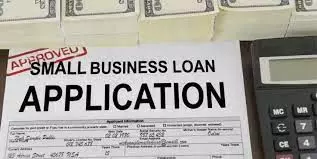Buying a business in Portland is a significant step towards achieving your entrepreneurial dreams. But where do you start?
Understanding the intricacies of business acquisition can feel overwhelming, from evaluating opportunities to navigating financing and legal complexities.
Gain valuable insights into the key aspects of the buying process:
Defining your ideal business:
What industry excites you?
What's your budget?
What are your long-term goals?
Clarifying your vision is crucial.
Evaluating potential acquisitions:
How do you assess financial health and growth potential? What are the red flags to watch out for?
Navigating financing and legal considerations:
What funding options are available? What legal documents and due diligence are essential?
Don't navigate this journey alone. Our experienced business brokers are ready to provide personalized guidance and support.
Schedule a consultation below to discuss your goals and explore potential opportunities in the Portland market.
FAQs ABOUT BUYING A BUSINESS
Buying a business is a big decision. This section answers 5 common questions we hear from buyers, like how to find the right business, secure financing, and negotiate a fair price. Have more questions? Contact us for a personalized consultation.
What are the key steps involved in conducting due diligence before purchasing a business?
Due diligence is crucial when buying a business. It helps you uncover potential risks and make informed decisions. Here's a breakdown of key areas to investigate:
1. Financial Due DiligenceReview financial statements: Analyze at least three years of profit and loss statements, balance sheets, and cash flow statements. Look for trends, inconsistencies, and red flags.
Scrutinize tax returns: Verify tax compliance and identify any outstanding liabilities or audits.
Assess debts and liabilities: Understand the business's debt obligations, including loans, leases, and accounts payable.
Analyze sales and expenses: Examine revenue streams, customer concentration, and cost structure to assess profitability and sustainability.
2. Legal Due DiligenceReview contracts and agreements: Examine customer contracts, supplier agreements, leases, and any other legal obligations.
Investigate licenses and permits: Ensure the business has all necessary licenses and permits to operate legally.
Assess intellectual property: Verify ownership and protection of trademarks, patents, and copyrights.
Check for litigation: Investigate any pending or past lawsuits or legal disputes.
3. Operational Due DiligenceUnderstand the business model: Gain a thorough understanding of the business's operations, products, services, and target market.
Evaluate customer relationships: Assess customer satisfaction, retention rates, and the overall customer base.
Analyze the competitive landscape: Identify competitors, market share, and competitive advantages.
Review key performance indicators (KPIs): Assess the business's performance using relevant metrics.
4. Employee Due DiligenceReview employee contracts and benefits: Understand employee compensation, benefits packages, and any potential liabilities.
Assess employee morale and turnover: Gain insights into employee satisfaction and retention rates.
Identify key personnel: Determine the importance of key employees and their potential impact on the business after the sale.
5. Asset Due DiligenceInventory and equipment: Verify the condition and value of inventory, equipment, and other physical assets.
Real estate: If applicable, assess the condition, ownership, and value of any real estate included in the sale.
Technology and infrastructure: Evaluate the business's IT systems, software, and data security measures.

Can I get financing to buy a business?
What are the advantages of buying an existing business versus starting from scratch?
How do business owners determine their asking price when selling?
Aren't most businesses for sale losing money?







